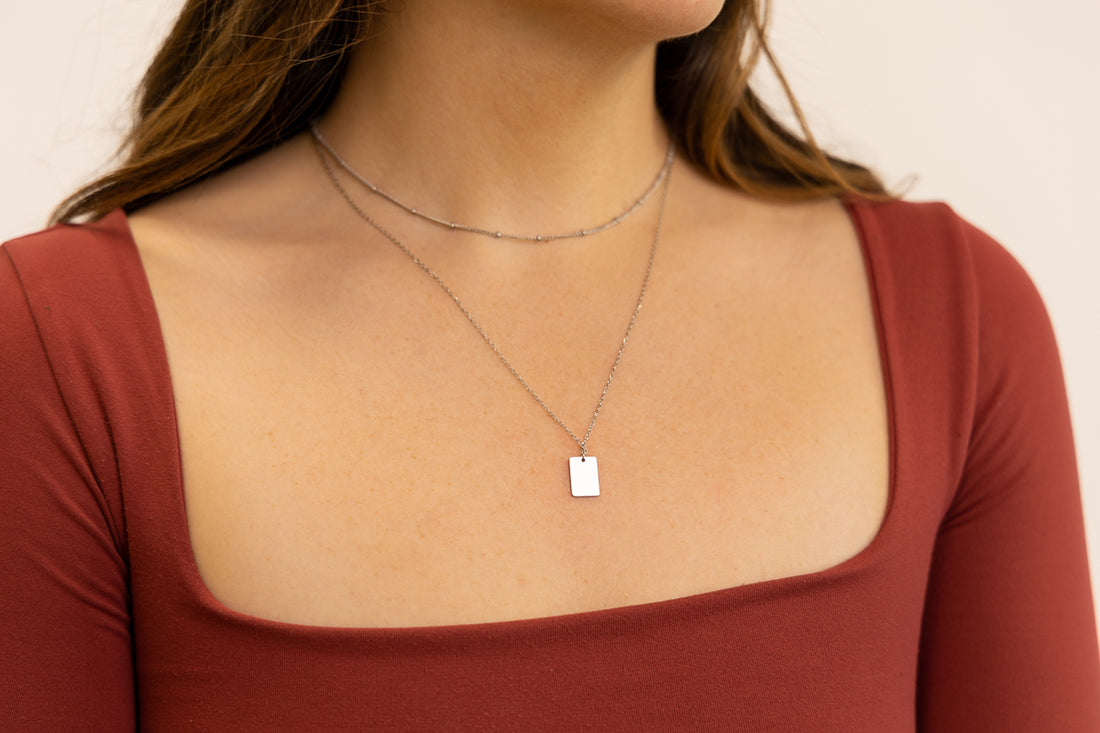Jewelry can be a beautiful addition to your wardrobe, but for those with sensitive skin, finding the right pieces can be challenging. Here, we’ll explore the best jewelry options for sensitive skin, discuss whether hypoallergenic jewelry tarnishes, and reveal the most hypoallergenic metal used for jewelry.
Best Jewelry for People with Sensitive Skin
Sensitive skin can react to certain metals, causing irritation, redness, or itching. To avoid these issues, it's essential to choose jewelry made from hypoallergenic materials. Here are some of the best options:
- Stainless Steel: Highly resistant to corrosion and rust, stainless steel is a durable and affordable option for those with sensitive skin.
- Titanium: Known for its strength and lightweight nature, titanium is hypoallergenic and perfect for everyday wear.
- Niobium: This lesser-known metal is naturally hypoallergenic, making it an excellent choice for sensitive skin.
- Platinum: Although more expensive, platinum is hypoallergenic and doesn’t tarnish, providing a luxurious option for those with skin sensitivities.
- Gold: Pure gold (24k) is generally hypoallergenic, but it's too soft for everyday wear. Opt for higher karat gold (18k or 14k) with minimal alloy content to reduce the risk of irritation.
Does Hypoallergenic Jewelry Tarnish?
Hypoallergenic jewelry can tarnish depending on the metal used. Here’s a quick rundown:
- Stainless Steel: Rarely tarnishes and is highly resistant to corrosion.
- Titanium: Does not tarnish and maintains its luster over time.
- Niobium: Highly resistant to tarnishing and corrosion.
- Platinum: Does not tarnish, although it may develop a patina that can be polished off.
- Gold: Pure gold does not tarnish, but alloys with other metals might. Higher karat gold is less likely to tarnish.
Which Silver is Hypoallergenic?
Sterling silver, which is 92.5% pure silver and 7.5% other metals (often copper), is generally considered hypoallergenic for most people. However, some individuals may still experience reactions to the alloy metals. For those with extreme sensitivities, Argentium silver is an excellent alternative. Argentium silver contains a higher percentage of pure silver (up to 93.5% or more) and replaces some of the copper with germanium, making it more tarnish-resistant and hypoallergenic.
What is the Most Hypoallergenic Metal Used for Jewelry?
Titanium is widely regarded as the most hypoallergenic metal used for jewelry. It is incredibly strong, lightweight, and completely biocompatible, meaning it’s unlikely to cause any allergic reactions. Additionally, titanium is resistant to tarnishing and corrosion, making it an ideal choice for sensitive skin and everyday wear.
General Tips for Choosing Hypoallergenic Jewelry
- Know Your Metals: Be aware of the metals in your jewelry and choose pieces with minimal or no alloy content that could cause reactions.
- Look for Coatings: Some hypoallergenic jewelry is coated with materials like rhodium to provide an extra layer of protection against allergens.
- Test Before Committing: If you’re unsure about a particular metal, try wearing it for a short period before committing to a more significant investment.
- Consult with a Professional: If you have severe skin sensitivities, consider consulting with a dermatologist or a professional jeweler to find the best options for you.
By choosing the right hypoallergenic materials and understanding their properties, you can enjoy beautiful jewelry without compromising your skin’s health. Whether you opt for titanium, platinum, or hypoallergenic silver, these metals offer both style and comfort for sensitive skin.


